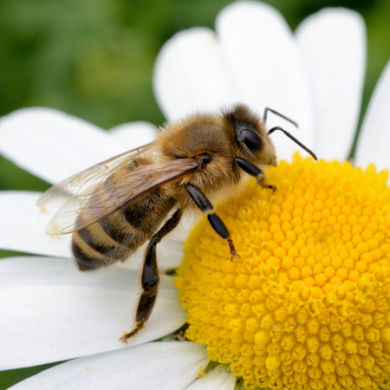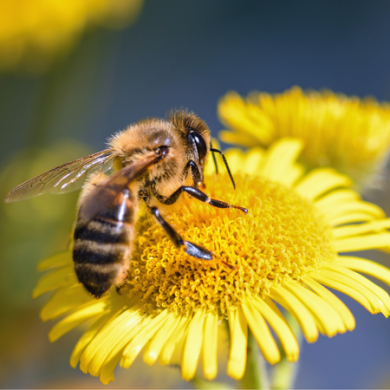Bees
Bees Appearance
Worker bees are recognizable by their thick bodies, abundant fuzz (long pile), and bright metallic coloration. They range from 14 to 18mm in length. Queen bees are often larger than worker bees, though the size is variable and they can overlap with workers.
Bees Behavior
Generally docile unless their hive is threatened or their larvae are touched, in which case adults will sting repeatedly without dying. Stings usually cause a fairly mild reaction; if they are left untreated, the affected area will swell and may be painful for several days.
Bees Diet and Hunting Methods
Worker bees gather nectar and pollen from flowers. Nectar provides the primary source of energy, while pollen provides protein. Bees take pollen back to the hive, where it is consumed or used as food for larvae; it can also be processed into royal jelly or bee bread. They feed on nectar to meet their energy requirements. Honey is composed mainly of fructose and glucose, as well as other simple sugars, minerals, vitamins, and proteins in smaller quantities.
Bees are unusual in that the usual female bee (the queen) takes an active role in courting potential mates. Once mated, queens lay eggs for about a week before they die. Unlike other insects, bees also have overlapping generations; the workers are sterile females who assist their mother or future mother with colony duties.
In the early spring, colonies produce males and new queens from unfertilized eggs laid by either a young queen or an old one departing with a swarm of workers. In the mid-summer months, there is a population decline because of this, as well as a decline in drones present due to bee cannibalism at times when nectar is scarce.
Bees Prevention
It is advised to avoid wearing perfume and bright colors when in a bee’s vicinity, as they may think you are a flower and attempt to approach. If stung by bees, remove stingers by scraping them with a fingernail or knife blade; do not pinch them, as it will only force more venom into the wound.








